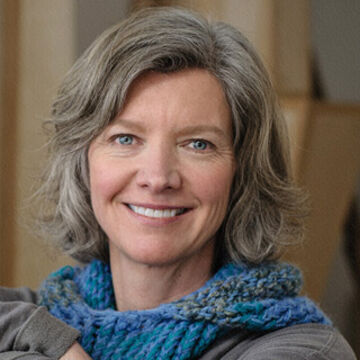| Core Studio Practice I |
Contemporary Practices |
1010 (009) |
Fall 2024 |
|
Description
In this course we will focus on disciplinary and interdisciplinary art and design practices of contemporary art production. This team-taught, year-long class explores the materials and techniques of surface, space, and time (2D, 3D, and 4D), as well as the connections and interplay of these areas. Core Studio integrates the formal with the conceptual, traditional with the contemporary, and makes visible a variety of approaches in current cultural production in order to foster the development of students? emerging practices as makers and thinkers. In this interdisciplinary studio course students will be authorized to use a variety of school shops, materials and equipment; including the woodshop, plaster studio, digital lab, sewing machine, hand tools, sound and video production, digital workflows and principles of visual fundamentals. This is a hands-on making class, faculty present artists and content related to a particular toolkit and, or project theme. Every section of Core Studio has shared learning outcomes which are uniquely realized by each Core faculty partnership. Students should expect a fast-paced studio environment. In Core Studio students will complete short assignments as well as longer multi-week projects. Assignments are designed to help students develop their own ideas in relation to the materials, processes, and themes presented by faculty.
|
Class Number
1296
Credits
3
|
| Core Studio Practice II |
Contemporary Practices |
1011 (013) |
Spring 2024 |
|
Description
In this course we will focus on disciplinary and interdisciplinary art and design practices of contemporary art production. This team-taught, year-long class explores the materials and techniques of surface, space, and time (2D, 3D, and 4D), as well as the connections and interplay of these areas. Core Studio integrates the formal with the conceptual, traditional with the contemporary, and makes visible a variety of approaches in current cultural production in order to foster the development of students? emerging practices as makers and thinkers. In this interdisciplinary studio course students will be authorized to use a variety of school shops, materials and equipment; including the woodshop, plaster studio, digital lab, sewing machine, hand tools, sound and video production, digital workflows and principles of visual fundamentals. This is a hands-on making class, faculty present artists and content related to a particular toolkit and, or project theme. Every section of Core Studio has shared learning outcomes which are uniquely realized by each Core faculty partnership. Students should expect a fast-paced studio environment. In Core Studio students will complete short assignments as well as longer multi-week projects. Assignments are designed to help students develop their own ideas in relation to the materials, processes, and themes presented by faculty.
|
Class Number
1703
Credits
3
|
| Research Studio I |
Contemporary Practices |
1020 (009) |
Fall 2024 |
|
Description
This studio course focuses on themes, practices, contexts, and questions undertaken by contemporary artists and designers. Research Studio I is a course that asks students to begin to develop and connect their own work and ideas with a diverse range of artists, designers, and communities. This course engages with cultural institutions including: museums, galleries, libraries and archives as resources of critical engagement. Students will undertake various types of research activities: a) collecting and classification, b) mapping and diagramming, c) systems of measurement, d) social interaction, e) information search systems, f) recording and representation, and g) drawing and other notational systems. Assignments in this course are faculty directed, open-media, interdisciplinary and idea based. The projects are designed to help students recognize their work habits, biases, strengths, and weaknesses. Students will experience a wide range of research methods and making strategies. Critique as an evaluative process used in art and design schools, is a focus in this course. Various methods and models of critique are used in order to give students the tools to discuss their own work and the work of others.
|
Class Number
1320
Credits
3
|
| RS:Yes, and... |
Contemporary Practices |
1022 (019) |
Spring 2024 |
|
Description
How do the rules and concepts in improvisation relate to broader social themes and histories? How can they inform your work in visual art and design? This class provides you with the opportunity to develop a series of works in response to our exploration of Yes, and… improvisational practices.
|
Class Number
1663
Credits
3
|
| Siena:Living Past in Present |
Off Campus |
3000 (001) |
Winter 2024 |
|
Description
This is a 0 credit study trip placeholder course. Specific credit courses will be applied to your enrollment for the term based on your Study Trip Preregistration information.
|
Class Number
1011
Credits
0
|
| Siena:Living Past in Present |
Off Campus |
3050 (001) |
Winter 2024 |
|
Description
|
Class Number
1013
Credits
3 - 6
|

